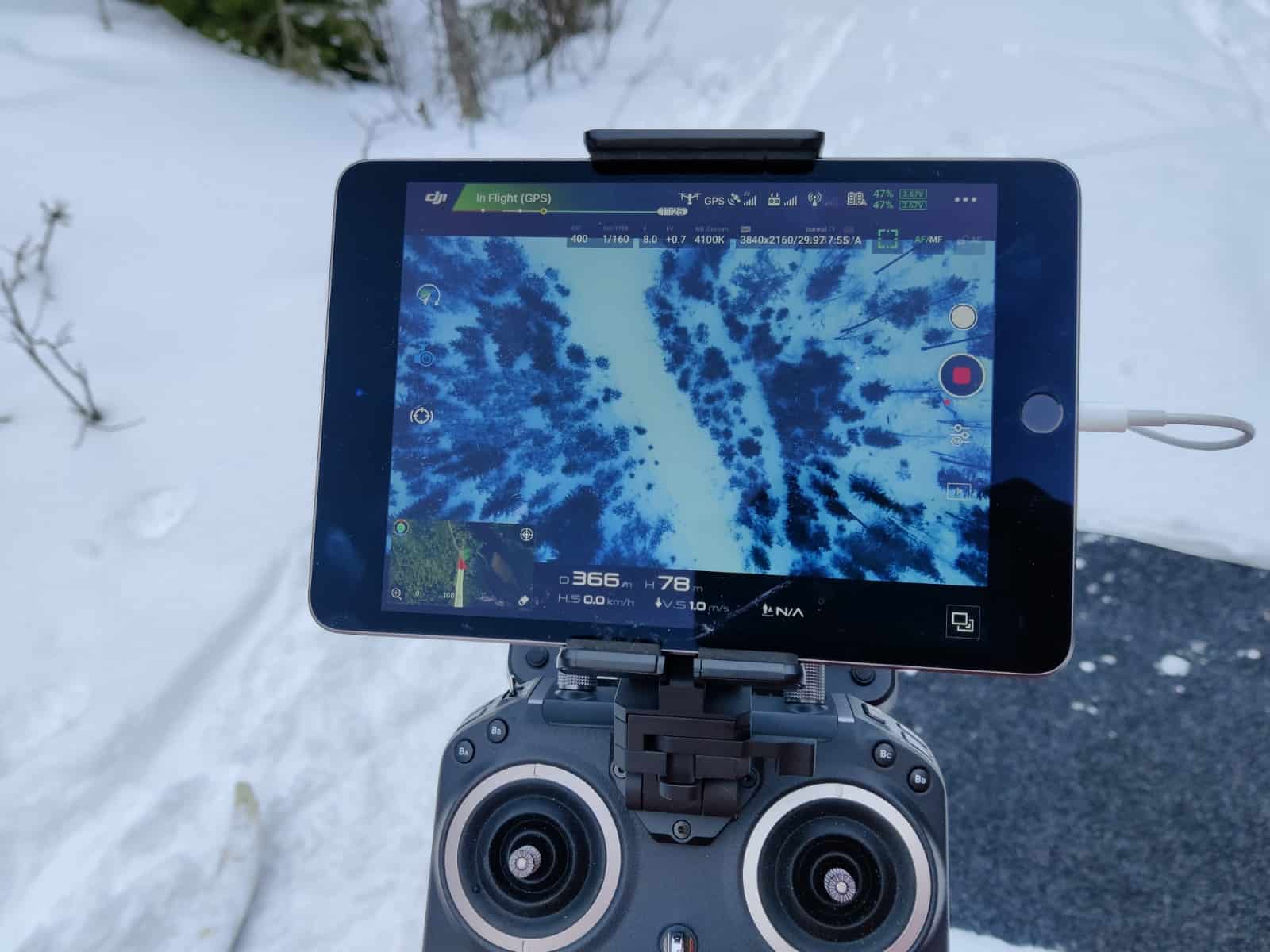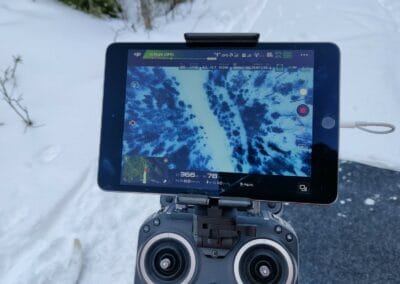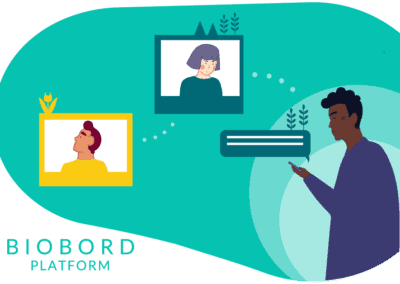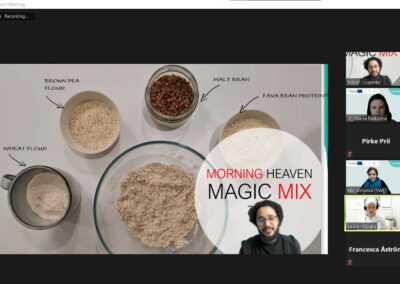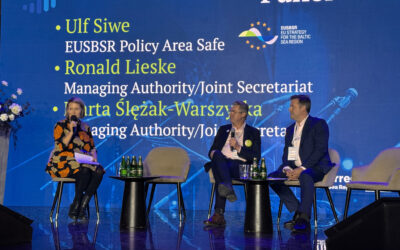This story is about bioeconomy developers with a passion for building smart, viable rural economy in the Baltic Sea region. It is about open innovation developed in a dialogue and co-creation. It is also about connecting talented people living in small communities in the middle of fields and forests eager to find solutions for sustainable and healthy food production, natural resources management and development of new and improved technologies. Read about #MadeWithInterreg Biobord network.
Current challenges of rural areas in the Baltic Sea region
The Baltic Sea region is known for its amble natural resources, well-developed infrastructure, and technological and environmental knowledge. It is said to have the potential to become one of the world’s leading regions in green growth and sustainable development. The bioeconomy is one of the areas that offers a plethora of new business and job options, rich opportunities to grow. It adds value to primary industries and helps develop rural areas.
Meanwhile, many of the Baltic Sea rural regions face limited human capital and brain drain, lack of agglomeration economies, low firm clustering, and a weak interaction with knowledge generating organisations, such as universities and research institutes. All this results in organisationally “thin” innovation systems and a low capacity for innovation. Engaging in transnational networks, alliances and partnerships is essential to tackle these challenges. For rural areas, it enables to unlock new market opportunities, and to keep up with the global competition.
Biobord network as a response to rural challenges
With a purpose to boost rural bioeconomy in the Baltic Sea region, partners of the projects RDI2CluB and its extension ConnectedByBiobord established the Biobord network. It was set up in 2018 by some of the leading and emerging bioeconomy regions around the Baltic Sea: Estonia, Central Finland, Vidzeme (Latvia), Inland Region (Norway) and Świętokrzyskie (Poland), and it has already extended by involvement of Skåne and Värmland regions from Sweden. The network connects regions with long traditions in bio-based businesses and smart specialisation strategies that prioritise knowledge-based, sustainable bioeconomy. It brings together professionals from government, businesses, education and research, and innovation brokerage organisations.
The network operates according to thematic Joint Agendas and using opportunities given by an open virtual innovation platform – www.biobord.eu.
Piloting a transnational innovation process through co-creation and stakeholder dialogue
It is not a secret that an effective innovation process is possible if its participants are open-minded, ready to cross a variety of boundaries – knowledge, professional, social, cultural, geographical, technological – and trust each other. We also know that building an effective innovation process requires time. To find out what it takes to develop novel bioeconomy solutions in a transnational context, the Biobord network piloted an innovation process based on a dialogue and co-creation in three thematic areas: sustainable food system, digital forestry and use of new technologies in the wild animal monitoring.
How do we define co-creation?
Co-creation means solving problems or exploring a new phenomenon in co-operation with people representing diverse backgrounds and different competence profiles. Co-creation builds connections and networks between research and business sector to enhance the societal impact of research and to increase business sector’s capacity for renewal. Dialogue can further involve policy makers or actors of the civil society, for example, to address societal challenges.
 In the Food Innovation pilot, we addressed the need for new protein sources, including insects and plant-based proteins, which could significantly decrease the negative climate effect of food production and introduce options for climate-friendly food consumption. We tested how open innovation process can facilitate building partnerships and alleviate innovation hurdles of small and medium-sized enterprises (SMEs), such as limited resources and R&D expertise. We organised a digital 24-hour long innovation competition “Food Hack by Biobord” with an international team of hackers representing a total of 14 SMEs from Latvia, Sweden, Finland, and Estonia. The teams looked solutions for marketing of healthy and nutritious food, changing the perception on plant-based proteins, transforming the attitude towards new products, and new protein sources. The winning team continued their journey and received mentoring support by four experts in the field to further develop their idea.
In the Food Innovation pilot, we addressed the need for new protein sources, including insects and plant-based proteins, which could significantly decrease the negative climate effect of food production and introduce options for climate-friendly food consumption. We tested how open innovation process can facilitate building partnerships and alleviate innovation hurdles of small and medium-sized enterprises (SMEs), such as limited resources and R&D expertise. We organised a digital 24-hour long innovation competition “Food Hack by Biobord” with an international team of hackers representing a total of 14 SMEs from Latvia, Sweden, Finland, and Estonia. The teams looked solutions for marketing of healthy and nutritious food, changing the perception on plant-based proteins, transforming the attitude towards new products, and new protein sources. The winning team continued their journey and received mentoring support by four experts in the field to further develop their idea.
 In the Forest Innovation pilot, we challenged the need for a data-based decision support system that would improve forest value chain profitability, while safe-guarding environmental and social sustainability. At first, we reviewed existing technologies throughout the forest value chain – from the forest stand to the end-user product. Then, we determined whether there was a transparent data chain following the value-chain to detect the missing links. Next, we organised an online co-creation event “Forest Hack by Biobord” in which international teams developed innovative solutions for data flow and use in the forest value chain. The teams consisting of members from Finland, Norway, Poland, and Sweden came up with the idea on a digital forestry lab to enhance possibilities to obtain more detailed and accurate data from forest, and a joint data platform for more accurate data from forests for better tracing of material and product flows. The idea will be taken further in upcoming projects.
In the Forest Innovation pilot, we challenged the need for a data-based decision support system that would improve forest value chain profitability, while safe-guarding environmental and social sustainability. At first, we reviewed existing technologies throughout the forest value chain – from the forest stand to the end-user product. Then, we determined whether there was a transparent data chain following the value-chain to detect the missing links. Next, we organised an online co-creation event “Forest Hack by Biobord” in which international teams developed innovative solutions for data flow and use in the forest value chain. The teams consisting of members from Finland, Norway, Poland, and Sweden came up with the idea on a digital forestry lab to enhance possibilities to obtain more detailed and accurate data from forest, and a joint data platform for more accurate data from forests for better tracing of material and product flows. The idea will be taken further in upcoming projects.
 In the Technology Innovation pilot, we explored how new technologies, such as drone-based remote sensing, can help improve the monitoring of wild animals and free-ranging livestock and their habitats. At first, the partners reviewed the existing capabilities of various remote sensing technologies and assessed their potential for wildlife monitoring. Then, they identified needs in every partner country to identify opportunities for the development of innovative, technology-based solutions. After that, we organised field demonstrations in Latvia, Finland and Norway to show the benefit of new technologies (drones, GPS collars, camera traps and biosensors) and to raise the stakeholders’ awareness and interest in our approach for monitoring wild animals and free-ranging livestock.
In the Technology Innovation pilot, we explored how new technologies, such as drone-based remote sensing, can help improve the monitoring of wild animals and free-ranging livestock and their habitats. At first, the partners reviewed the existing capabilities of various remote sensing technologies and assessed their potential for wildlife monitoring. Then, they identified needs in every partner country to identify opportunities for the development of innovative, technology-based solutions. After that, we organised field demonstrations in Latvia, Finland and Norway to show the benefit of new technologies (drones, GPS collars, camera traps and biosensors) and to raise the stakeholders’ awareness and interest in our approach for monitoring wild animals and free-ranging livestock.
From pilots to practice
The experience of three pilots has served as a base for the creation of the Biobord Network Partner Guide 3: Innovation Process. The three pilots have also resulted in Joint Agendas that will guide Biobord network members in the years to come. In fact, the established Biobord network is one of the most important and lasting results of the projects. Twelve previous partners of RDI2CluB and ConnectedByBiobord already signed a network agreement until the end of 2025. The partners represent six Baltic Sea regions from Estonia, Finland, Latvia, Norway, Poland, and Sweden.
A project of strategic importance for the macro-region
The development of the Biobord network, Joint Agendas, and the Innovation process as well as the design of the network’s operating model and the co-operation platform “Biobord” has been supported by Interreg Baltic Sea Region projects RDI2CluB and ConnectedByBiobord, which both are flagships of the Policy Area Bioeconomy of the EU Strategy for the Baltic Sea Region.
Article by Riikka Kumpulainen, JAMK University of Applied Sciences, Institute of Bioeconomy



